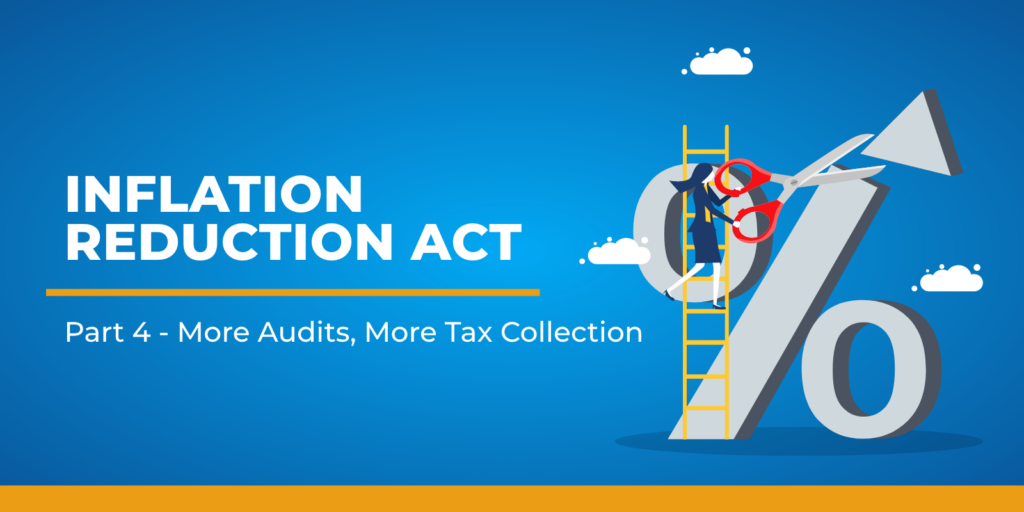
We know that an increased budget for enforcement will lead to more audits. More audits mean more tax collection. The question that remains to be answered is exactly how much federal tax revenue the IRS expects to collect with the new Inflation Reduction Act.
How much taxes will be collected with the Inflation Reduction Act?
The Congressional Budget Office recently released a report that estimated the budgetary effects of the Inflation Reduction Act. They expect increased collections of about $203 billion over the next decade. This would raise federal revenue by almost $125 billion during that 10-year period after taking into account the $80 billion cost of the act.
Why is tougher enforcement necessary?
According to the IRS, most taxpayers pay their federal taxes willingly and on time. However, that still leaves nearly $400 billion in uncollected tax payments. They believe that tougher enforcement can help close the tax gap. In other words, stricter enforcement will help lessen the difference between the amount of taxes that is collected, and the amount taxpayers owe.
IRS enforcement, audits in particular, has been less frequent in the last decade. In fact, audit rates have dropped for all levels of income between 2010 and 2019. In fact, a tax return was three times more likely to be audited in 2010 than in 2019. However, this is not due to the IRS becoming more lenient or forgiving. The issue centers around staffing levels and funding. The IRS is expecting the new funding from the Inflation Reduction Act to help balance staffing levels in order to be able to collect more tax revenue.
Are you prepared for increased tax collection?
With increased IRS tax collection approaching, it’s important to be prepared. It’s never too late to seek tax debt relief. Get protected from the stress and burdens that come with IRS tax collection. Give us a call at 800-536-0734 for a free consultation.